
Cognitive science is the interdisciplinary, scientific study of the mind and its processes with input from linguistics, psychology, neuroscience, philosophy, computer science/artificial intelligence, and anthropology. It examines the nature, the tasks, and the functions of cognition. Cognitive scientists study intelligence and behavior, with a focus on how nervous systems represent, process, and transform information. Mental faculties of concern to cognitive scientists include language, perception, memory, attention, reasoning, and emotion; to understand these faculties, cognitive scientists borrow from fields such as linguistics, psychology, artificial intelligence, philosophy, neuroscience, and anthropology. The typical analysis of cognitive science spans many levels of organization, from learning and decision to logic and planning; from neural circuitry to modular brain organization. One of the fundamental concepts of cognitive science is that "thinking can best be understood in terms of representational structures in the mind and computational procedures that operate on those structures."

Cognitive psychology is the scientific study of mental processes such as attention, language use, memory, perception, problem solving, creativity, and reasoning.

Cognitive neuroscience is the scientific field that is concerned with the study of the biological processes and aspects that underlie cognition, with a specific focus on the neural connections in the brain which are involved in mental processes. It addresses the questions of how cognitive activities are affected or controlled by neural circuits in the brain. Cognitive neuroscience is a branch of both neuroscience and psychology, overlapping with disciplines such as behavioral neuroscience, cognitive psychology, physiological psychology and affective neuroscience. Cognitive neuroscience relies upon theories in cognitive science coupled with evidence from neurobiology, and computational modeling.
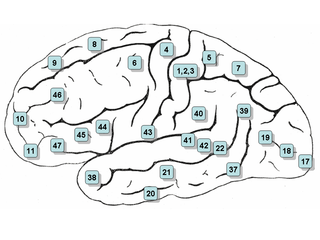
Neurolinguistics is the study of neural mechanisms in the human brain that controls the comprehension, production, and acquisition of language. As an interdisciplinary field, neurolinguistics draws methods and theories from fields such as neuroscience, linguistics, cognitive science, communication disorders and neuropsychology. Researchers are drawn to the field from a variety of backgrounds, bringing along a variety of experimental techniques as well as widely varying theoretical perspectives. Much work in neurolinguistics is informed by models in psycholinguistics and theoretical linguistics, and is focused on investigating how the brain can implement the processes that theoretical and psycholinguistics propose are necessary in producing and comprehending language. Neurolinguists study the physiological mechanisms by which the brain processes information related to language, and evaluate linguistic and psycholinguistic theories, using aphasiology, brain imaging, electrophysiology, and computer modeling.

An event-related potential (ERP) is the measured brain response that is the direct result of a specific sensory, cognitive, or motor event. More formally, it is any stereotyped electrophysiological response to a stimulus. The study of the brain in this way provides a noninvasive means of evaluating brain functioning.

Music psychology, or the psychology of music, may be regarded as a branch of both psychology and musicology. It aims to explain and understand musical behaviour and experience, including the processes through which music is perceived, created, responded to, and incorporated into everyday life. Modern music psychology is primarily empirical; its knowledge tends to advance on the basis of interpretations of data collected by systematic observation of and interaction with human participants. Music psychology is a field of research with practical relevance for many areas, including music performance, composition, education, criticism, and therapy, as well as investigations of human attitude, skill, performance, intelligence, creativity, and social behavior.
Developmental cognitive neuroscience is an interdisciplinary scientific field devoted to understanding psychological processes and their neurological bases in the developing organism. It examines how the mind changes as children grow up, interrelations between that and how the brain is changing, and environmental and biological influences on the developing mind and brain.

The Wellcome Centre for Human Neuroimaging at University College London is a world-leading interdisciplinary centre for neuroimaging research based in London, United Kingdom. Researchers at the Centre use expertise to investigate how the human brain generates behaviour, thoughts and feelings and how to use this knowledge to help patients with neurological and psychiatric disorders. Human neuroimaging allows scientists to non-invasively investigate the brain structure and functions including Action, Decision Making, Emotion, Hearing, Language, Memory, Navigation, Seeing, Self awareness, Social Behaviour and the Bayesian Brain
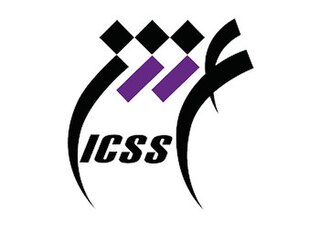
The Institute for Cognitive Science Studies (ICSS) (Persian: موسسه آموزش عالی علوم شناختی, Moasesse-ye Amouzesh-e Aali-e Oloum-e Shenakhti) is a non-governmental, non-for-profit advanced research institution in Pardis, Tehran, Iran, committed to promoting research and educational efforts that bring together the various disciplines that contribute to cognitive sciences and its related technologies.
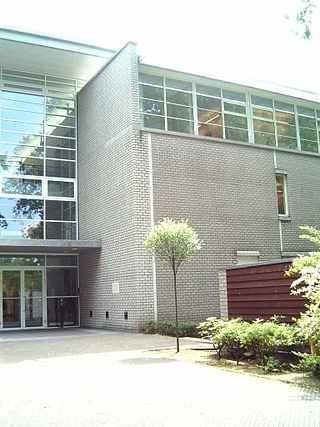
The Max Planck Institute for Psycholinguistics is a research institute situated on the campus of Radboud University Nijmegen located in Nijmegen, Gelderland, the Netherlands. The institute was founded in 1980 by Pim Levelt, and is particular for being entirely dedicated to psycholinguistics, and is also one of the few institutes of the Max Planck Society to be located outside Germany. The Nijmegen-based institute currently occupies 5th position in the Ranking Web of World Research Centers among all Max Planck institutes. It currently employs about 235 people.

Vittorio Gallese is professor of Psychobiology at the University of Parma, Italy, and was professor in Experimental Aesthetics at the University of London, UK (2016-2018). He is an expert in neurophysiology, cognitive neuroscience, social neuroscience, and philosophy of mind. Gallese is one of the discoverers of mirror neurons. His research attempts to elucidate the functional organization of brain mechanisms underlying social cognition, including action understanding, empathy, language, mindreading and aesthetic experience.
Ping Li is a Professor of Psychology, Linguistics, and Information Sciences and Technology at Pennsylvania State University. He specializes in language acquisition, focusing on bilingual language processing in East Asian languages and connectionist modeling. Li received a B.A. in Chinese linguistics from Peking University in 1983, an M.A. in theoretical linguistics from Peking University, a Ph.D. in psycholinguistics from Leiden University and the Max Planck Institute for Psycholinguistics in 1990, and completed post-doctoral fellowships at the Center for Research in Language at the University of California, San Diego and the McDonnell-Pew Center for Research in Cognitive Neuroscience in 1992. Li has been employed at the Chinese University of Hong Kong (1992–1996), the University of Richmond (1996–2006), and Pennsylvania State University (2008–present), and he has also served as a Visiting Associate Professor at Hong Kong University (2002–2003), an adjunct professor at the State Key Laboratory for Cognitive Neuroscience and Learning at Beijing Normal University (2000–present), as well as Program Director for the Perception, Action, and Cognition Program and the Cognitive Neuroscience Program at the National Science Foundation (2007–2009).
Hanna Damasio is a scientist in the field of cognitive neuroscience. Using computerized tomography and magnetic resonance imaging, she has developed methods of investigating human brain structure and studied functions such as language, memory, and emotion, using both the lesion method and functional neuroimaging. She is currently a Dana Dornsife Professor of Neuroscience and Director of the Dana and David Dornsife Cognitive Neuroscience Imaging Center at the University of Southern California.
Philip David Zelazo is a developmental psychologist and neuroscientist. His research has helped shape the field of developmental cognitive neuroscience regarding the development of executive function.

Angela Friederici is a director at the Max Planck Institute for Human Cognitive and Brain Sciences in Leipzig, Germany, and is an internationally recognized expert in neuropsychology and linguistics. She is the author of over 400 academic articles and book chapters, and has edited 15 books on linguistics, neuroscience, language and psychology.
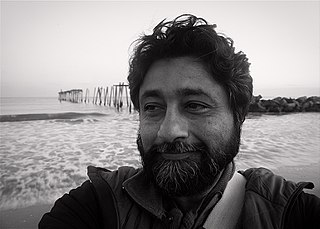
Anjan Chatterjee is a professor of neurology at the Perelman School of Medicine at the University of Pennsylvania. He is director of the Penn Center for Neuroaesthetics (PCfN) and a member of the Center for Cognitive Neuroscience. His research focuses on spatial cognition and its relationship to language. He also conducts neuroaesthetics research and writes about the ethical use of neuroscience findings in society.
Newton Howard is a brain and cognitive scientist, the former founder and director of the MIT Mind Machine Project at the Massachusetts Institute of Technology (MIT). He is a professor of computational neurology and functional neurosurgery at Georgetown University. He was a professor of at the University of Oxford, where he directed the Oxford Computational Neuroscience Laboratory. He is also the director of MIT's Synthetic Intelligence Lab, the founder of the Center for Advanced Defense Studies and the chairman of the Brain Sciences Foundation. Professor Howard is also a senior fellow at the John Radcliffe Hospital at Oxford, a senior scientist at INSERM in Paris and a P.A.H. at the CHU Hospital in Martinique.
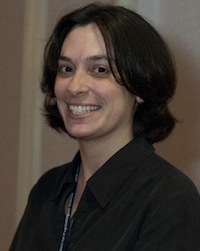
Sharon Thompson-Schill is the Christopher H. Browne Distinguished Professor of Psychology at the University of Pennsylvania in Philadelphia, Pennsylvania. Her research covers the field of biological basis of human cognitive systems, including language, memory, perception, and cognitive control, and the relationships between these systems. As of 2023, she has produced more than 190 scientific publications, which collectively have been cited over 18,000 times.
Cyma Kathryn Van Petten is an American cognitive neuroscientist known for electrophysiological studies of language, memory, and cognition. She is Professor of Psychology at the State University of New York at Binghamton where she directs the Event-Related Potential Lab. Van Petten was recipient of the Early Career Award from the Society for Psychophysiological Research in 1994.
Seana Coulson is a cognitive scientist known for her research on the neurobiology of language and studies of how meaning is constructed in human language, including experimental pragmatics, concepts, semantics, and metaphors. She is a professor in the Cognitive Science department at University of California, San Diego, where her Brain and Cognition Laboratory focuses on the cognitive neuroscience of language and reasoning.











